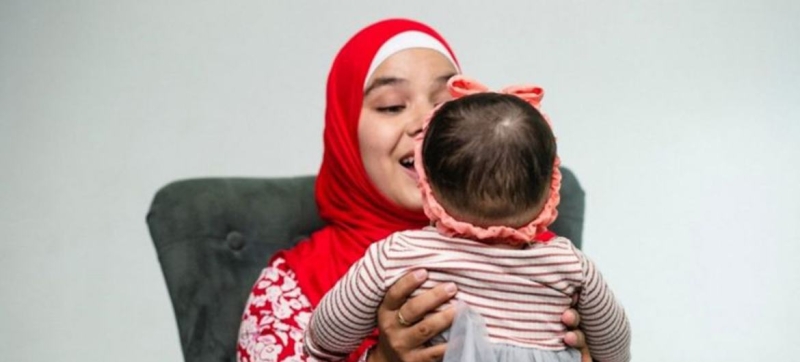
Azima’s story is an example of the progress made in Uzbekistan’s response to HIV in recent years. Activist from Uzbekistan with HIV infection: “I have a bright future ahead of me, and I will achieve my goals” Healthcare
Azima has been living with HIV since childhood; her parents left her and she was raised by her grandmother. Today she is an active public leader in the fight against HIV and the first young woman in Uzbekistan to disclose her HIV-positive status.
“I am strong. I have a bright future ahead of me and I will achieve my goals,” says Azima.
After publicly disclosing her status, she faced both positive and negative reactions. negative reaction. Azima is especially grateful to the activist group of adolescents and young people living with HIV, which is supported by UNICEF.
“Eventually the energy of the people who supported me was so strong that I was able to overcome my fear of criticism,” she says.
As a consultant, Azima is doing everything possible to make people know more about HIV infection.
Today Azima is studying psychology at Fergana State University. She was encouraged to choose a future profession by her grandmother and inspired by a psychologist who worked in her support group.
Thanks to antiretroviral treatment for HIV, Azima is unable to transmit the infection to her husband. A few months ago she gave birth to a healthy baby girl.
Azima’s story is an example of the progress made in Uzbekistan’s response to HIV in recent years. Antiretroviral therapy in this Central Asian country is provided free of charge to everyone who needs it. Uzbekistan is also making efforts to ensure that all women living with HIV receive timely treatment and all children are born without HIV infection. According to the Republican AIDS Center, since 2016, the coverage of pregnant women receiving antiretroviral therapy to prevent vertical transmission of HIV (from mother to child) is about 98 percent.

“The rate of vertical transmission of HIV in 2023 was 0.2 percent. We strive to reduce this figure to zero. Uzbekistan is on the verge of receiving an international certificate for the elimination of mother-to-child transmission of HIV,” says Bakhrom Igamberdiev, director of the Republican AIDS Center in Uzbekistan.
The country has officially approved the “Roadmap for the implementation of measures to achieve validation of the elimination of mother-to-child transmission of HIV for 2024-2026.” This plan will be implemented with the participation of a number of partners, which will allow Uzbekistan to achieve its goal and obtain confirmation of the elimination of vertical transmission of HIV. An effective response to HIV is a priority for both the government and civil society of Uzbekistan.
Despite the successes, a number of problems remain in the fight against HIV in Uzbekistan, especially in the field of prevention. They are linked to deep-rooted societal norms and systemic inequalities.
Only 14 percent of women in Uzbekistan aged 15 to 49 have comprehensive knowledge of HIV, according to a recent study. Among young women aged 15 to 25, this figure drops to 10 percent.
Read also:
WHO: Ukraine is successfully fighting HIV
“Solving these systemic problems requires comprehensive efforts to promoting gender equality, ensuring access to sexual and reproductive health and rights, and women’s economic empowerment. UNAIDS is working with partners to improve access to education and create an enabling environment for women to realize their full potential,” said Eamonn Murphy, UNAIDS Regional Director for Asia and the Pacific, Eastern Europe and Central Asia.
Azima believes that transparency and education are critical to combating stigma and increasing access to prevention, testing and treatment. She advises girls to disclose their HIV status to their partners early in their relationships and emphasizes the importance of adherence to treatment and mutual support within the family.
